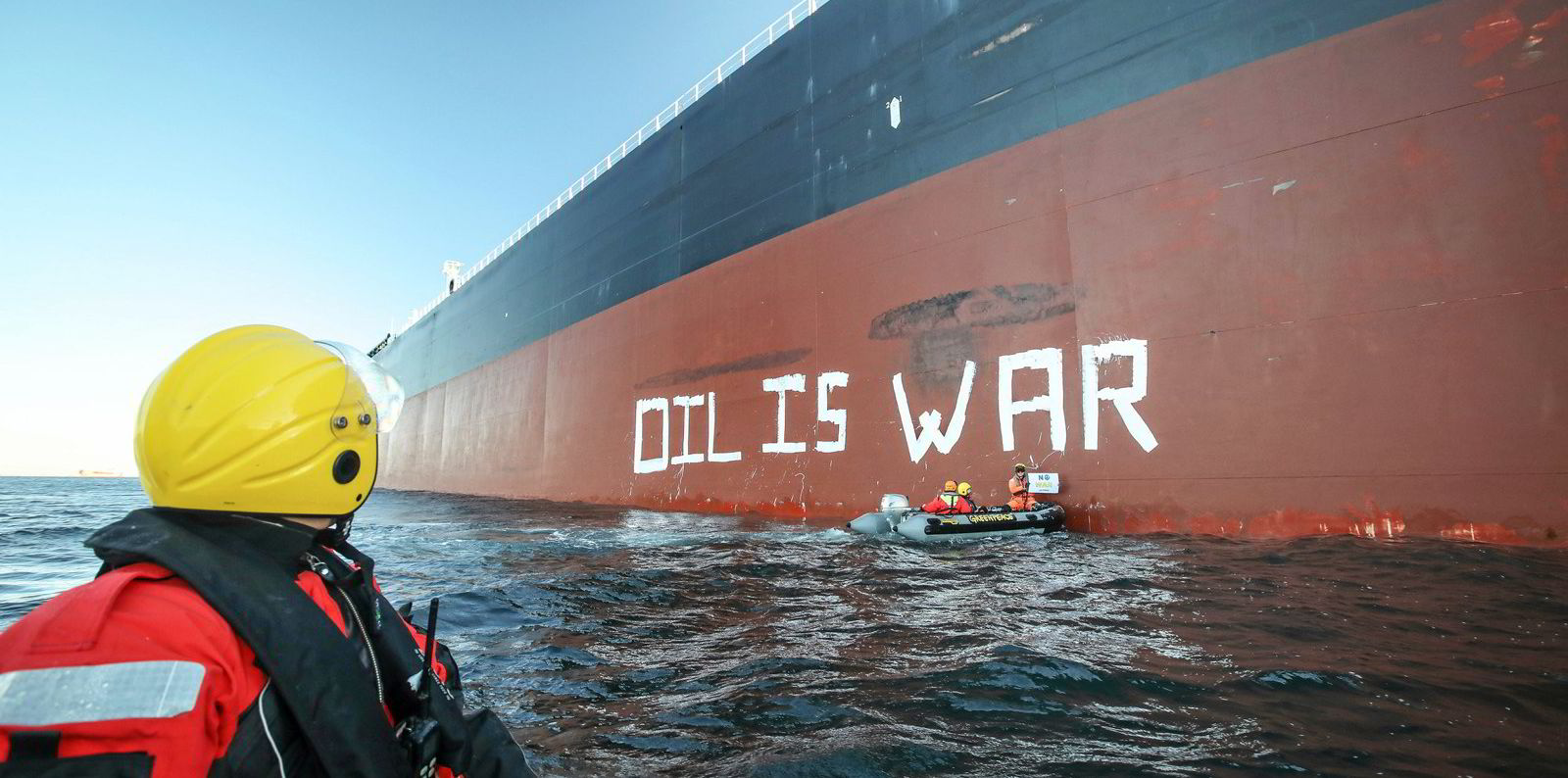Ship-to-ship (STS) transfers of Russian crude oil and products off the Greek coast boomed during April, with many cargoes bound for receivers in countries that have imposed trade sanctions on Russia or are contemplating doing so, data shows.
Data from tanker platform Vortexa shows that the US was the top destination for oil cargoes that were transferred in STS operations since March.
All tanker voyages to the US were completed ahead of its import ban on Russian energy cargoes on 22 April, the platform said.
The next biggest importers of Russian oil cargoes transferred by STS since March have been the UK, United Arab Emirates, Denmark and India, according to Vortexa.
The European Union is contemplating a complete ban on imports of Russian crude and products to its 27 member nations.
The US imported nearly 700,000 barrels per day of crude oil and refined products from Russia last year.
Greece has become a particular hotspot for STS transfer of Russian cargoes, the data shows.
Vortexa counted 18 transfers of cargoes, including refined products, fuel oil and crude, off the Greek coast in April. Only four such transfers were made during April 2021.
The activity last month represents a 60% increase from the 11 STS transfers completed in March.
Since the US ban came into effect last month, the western coast of India has stepped in as the top export destination for Russian crude and products following STS transfer operations.
The UK and Continent region also continues to be a top importer of these Russian commodities.
Fuel oil
There has been a distinct uptick in STS transfers of Russian fuel oil in particular.
“We see a distinct increase in STS transfers of Russia fuel oil off the Greek coast, while Russian crude STS transfers in the same region and in Europe, in general, were not particularly high/volatile,” Vortexa freight analyst Dylan Simpson told TradeWinds.
Refinitiv data shows fuel oil shipments to Greece hit nearly 900,000 tonnes last month, almost double the March total, with a new record expected to be set for May.
Most of this involved cargoes from Russian ports heading to Kalamata, Reuters reported.
Traders said the fuel oil is being stored and blended off Greece on tankers and then loaded onto other vessels for export elsewhere.
The top export destinations for Russian fuel oil transferred between vessels in Kalamata have been India, the UK and Singapore, according to Vortexa.
Fuel oil demand is being driven by shipping’s bunker consumption.
Strong demand for fuel oil also stems from refining and the power generation sector. Hot weather is driving demand for electricity as the Middle East and south Asia strive to keep cool.
“The Kalamata STS zone is geographically suited for Russian oil/products moving out of the Black Sea, hence STS transfers here make the most logistical sense for ship operators and merchants,” Simpson told TradeWinds.
“STS activity in this location has also picked up due to shipowners’ reluctance to enter the Black Sea and STS in Taman [in Russia]. This could be to circumvent higher insurance premiums and/or Russian oil sanctions.”
The trade mainly entails suezmax and aframax tankers carrying cargoes out of the Black Sea, he added.
“Russia is the world’s top exporter of residual fuels with abundant supplies, many of which come through Russian refineries and terminals located in the Black Sea, where shipping costs and insurance premiums have surged, forcing Russian suppliers to bring those fuel oil cargoes away from the Black Sea for export,” Simpson said.
We see a distinct increase in STS transfers of Russia fuel oil off the Greek coast
— Dylan Simpson, Vortexa
Protests
Greek owner Liquimar’s 167,300-dwt suezmax Evridiki (built 2007) loaded a Russian fuel oil cargo in mid-April off Kalamata.
The tanker then headed to major bunkering hub Fujairah in the UAE, according to Refinitiv data cited by Reuters.
Another suezmax, the 159,400-dwt Okeanos (built 2003), loaded fuel oil via STS off Kalamata this month, data showed. The ship, operated by Salmar Shipping of Greece, is heading to India.
Shipping sources also told Reuters that Russian oil sellers have restored STS operations in Rotterdam and near Spain’s Ceuta after EU sanctions and activist protests put a stop to such procedures off Denmark.





